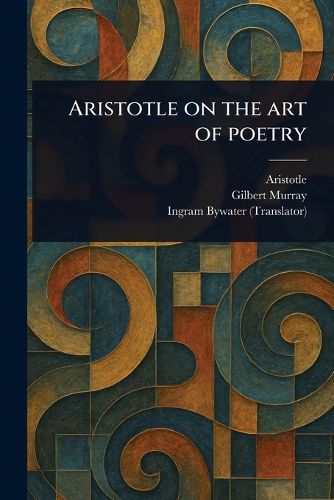Readings Newsletter
Become a Readings Member to make your shopping experience even easier.
Sign in or sign up for free!
You’re not far away from qualifying for FREE standard shipping within Australia
You’ve qualified for FREE standard shipping within Australia
The cart is loading…






This title is printed to order. This book may have been self-published. If so, we cannot guarantee the quality of the content. In the main most books will have gone through the editing process however some may not. We therefore suggest that you be aware of this before ordering this book. If in doubt check either the author or publisher’s details as we are unable to accept any returns unless they are faulty. Please contact us if you have any questions.
Aristotle's "The Poetics (On the Art of Poetry)" remains a cornerstone of literary criticism and aesthetics. This foundational work explores the principles of poetry and tragedy, delving into their structure, elements, and purpose. Aristotle's analysis provides enduring insights into the nature of storytelling and its impact on audiences. A vital resource for understanding ancient drama and its lasting influence on literature, "The Poetics" examines key concepts such as plot, character, and catharsis, offering a framework for interpreting and appreciating artistic expression. This meticulously prepared print edition allows readers to engage directly with Aristotle's profound reflections on the art of poetry, making it an essential addition to any library for those interested in philosophy, aesthetics, and the foundations of literary theory. Discover the roots of dramatic analysis in this timeless exploration of poetry and its power.
This work has been selected by scholars as being culturally important, and is part of the knowledge base of civilization as we know it.
This work is in the public domain in the United States of America, and possibly other nations. Within the United States, you may freely copy and distribute this work, as no entity (individual or corporate) has a copyright on the body of the work.
Scholars believe, and we concur, that this work is important enough to be preserved, reproduced, and made generally available to the public. We appreciate your support of the preservation process, and thank you for being an important part of keeping this knowledge alive and relevant.
$9.00 standard shipping within Australia
FREE standard shipping within Australia for orders over $100.00
Express & International shipping calculated at checkout
Stock availability can be subject to change without notice. We recommend calling the shop or contacting our online team to check availability of low stock items. Please see our Shopping Online page for more details.
This title is printed to order. This book may have been self-published. If so, we cannot guarantee the quality of the content. In the main most books will have gone through the editing process however some may not. We therefore suggest that you be aware of this before ordering this book. If in doubt check either the author or publisher’s details as we are unable to accept any returns unless they are faulty. Please contact us if you have any questions.
Aristotle's "The Poetics (On the Art of Poetry)" remains a cornerstone of literary criticism and aesthetics. This foundational work explores the principles of poetry and tragedy, delving into their structure, elements, and purpose. Aristotle's analysis provides enduring insights into the nature of storytelling and its impact on audiences. A vital resource for understanding ancient drama and its lasting influence on literature, "The Poetics" examines key concepts such as plot, character, and catharsis, offering a framework for interpreting and appreciating artistic expression. This meticulously prepared print edition allows readers to engage directly with Aristotle's profound reflections on the art of poetry, making it an essential addition to any library for those interested in philosophy, aesthetics, and the foundations of literary theory. Discover the roots of dramatic analysis in this timeless exploration of poetry and its power.
This work has been selected by scholars as being culturally important, and is part of the knowledge base of civilization as we know it.
This work is in the public domain in the United States of America, and possibly other nations. Within the United States, you may freely copy and distribute this work, as no entity (individual or corporate) has a copyright on the body of the work.
Scholars believe, and we concur, that this work is important enough to be preserved, reproduced, and made generally available to the public. We appreciate your support of the preservation process, and thank you for being an important part of keeping this knowledge alive and relevant.